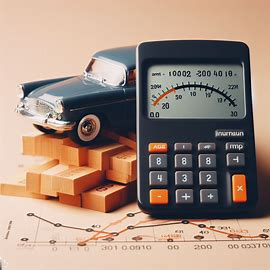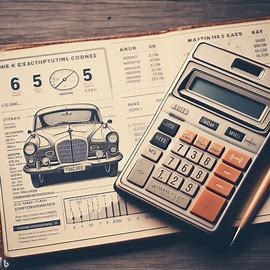A car, for many, is more than just a means of transportation; it’s a faithful companion on life’s countless journeys. As you invest your time, money, and trust into your vehicle, a fundamental question often arises: How many miles does a car last? This query goes to the heart of car ownership, encompassing concerns about longevity, maintenance, and the return on your investment. In this exploration, we’ll embark on a voyage into the lifespan of automobiles, uncovering the factors that influence a car’s longevity, and equipping you with insights to ensure your vehicle continues to serve you faithfully for years to come.
Key Takeaways
- The average age of vehicles still on the road is over 11 years, and it may be approaching 12 years.
- Standard cars are expected to run up to 200,000 miles.
- Cars with electric engines are expected to last up to 300,000 miles.
- Regular maintenance and servicing, using high-quality fuel and lubricants, driving smoothly, and addressing issues promptly are key factors in extending a car’s lifespan.
Average Lifespan and Mileage of Cars
You should aim for regular maintenance and servicing to ensure the average lifespan and mileage of your car. On average, cars are expected to last over 11 years, possibly even 12 years. Standard cars can run up to 200,000 miles, while cars with electric engines can last up to 300,000 miles.
To maximize the longevity of your vehicle, choose a car with advanced safety systems to prevent accidents and minimize damage. Pay attention to the vehicle management system, which can improve fuel economy and help track maintenance.
Stick to a routine maintenance schedule and promptly address small issues before they become major problems. Regular oil changes, tire rotations, and tune-ups are essential. Timely brake pad changes and check-ups can prevent significant issues. Proper maintenance keeps the engine lubricated and improves resale value.
Following a maintenance schedule avoids unexpected repairs and ensures your car lasts for years.
Tips and Importance of Maintenance for Car Longevity
Following a routine maintenance schedule and addressing small problems promptly can significantly increase the longevity of your car.
Regular oil changes, tire rotations, and tune-ups are essential for keeping your car running smoothly.
Timely brake pad changes and check-ups can prevent major issues down the line.
Don’t ignore any unusual smells, odd feelings, or performance issues in your car. It’s important to promptly take your car to a mechanic when it indicates a problem.
Proper maintenance keeps the engine lubricated and improves the resale value of your car.
Additionally, choosing a certified mechanic experienced in working with your car’s complex systems is crucial..

Addressing Small Issues and Choosing a Good Mechanic
If something seems off with your car, don’t hesitate to address it promptly and find a reliable mechanic. Ignoring small issues can lead to bigger problems down the line.
Taking your car to a mechanic as soon as it indicates a problem is crucial. Trust your instincts and pay attention to any unusual smells, odd feelings, or performance issues.
Cleaning the engine annually can also help prevent strain on the systems and reduce the car’s lifespan.
When choosing a mechanic, opt for certified professionals who’ve experience working with your car’s complex systems.
Factors Affecting Car Lifespan and Buying a Used Car
When considering buying a used car, it’s important to take into account factors that can affect the car’s lifespan and overall condition. Factors such as maintenance and regular servicing, driving conditions and habits, quality of materials and manufacturing, climate and weather conditions, and type of fuel used can all impact how long a car will last.
It’s crucial to look for signs of a car nearing the end of its lifespan, such as frequent breakdowns and repairs, excessive rust and corrosion, engine and transmission problems, safety issues, high mileage, and decreased fuel efficiency.
To extend a car’s lifespan, regular maintenance and servicing, using high-quality fuel and lubricants, driving smoothly, and protecting the car from harsh weather conditions are all important.
When buying a used car, consider the mileage and age of the car, service history and maintenance records, signs of previous accidents or damage, overall condition and appearance, and the reputation and reliability of the car brand.
Frequently Asked Questions
What Are Some Signs That a Car Is Nearing the End of Its Lifespan?
If you notice frequent breakdowns, excessive rust, engine or transmission problems, safety issues, high mileage, or decreased fuel efficiency, these could be signs that your car is nearing the end of its lifespan.
How Can I Extend the Lifespan of My Car?
To extend your car’s lifespan, follow a maintenance schedule, address small issues promptly, and choose a good mechanic. Regular servicing, using high-quality fuel, and driving smoothly also contribute to longevity.
What Factors Should I Consider When Buying a Used Car?
Consider factors such as mileage, age, service history, signs of accidents or damage, overall condition, and reputation of the car brand when buying a used car. These factors can help you make an informed decision.
Is It Better to Choose a Car With a Standard Engine or an Electric Engine for Longevity?
Choosing a car with an electric engine can be better for longevity. Electric cars are expected to last up to 300,000 miles, compared to standard cars that run up to 200,000 miles.
How Do Vehicle Management Systems Improve Fuel Economy and Maintenance Tracking?
Vehicle management systems improve fuel economy and maintenance tracking by analyzing driving habits, providing diagnostic health monitoring, and helping to adhere to maintenance schedules. They are a valuable tool for maximizing the efficiency and longevity of your car.
Conclusion
So, now you know the secret to keeping your car going strong for years to come.
By following a regular maintenance schedule, promptly addressing small issues, and utilizing vehicle management systems, you can ensure that your car remains reliable and efficient.
With these tips, you’ll be able to enjoy the euphoric feeling of driving your car for many miles, gracefully defying the passage of time.
